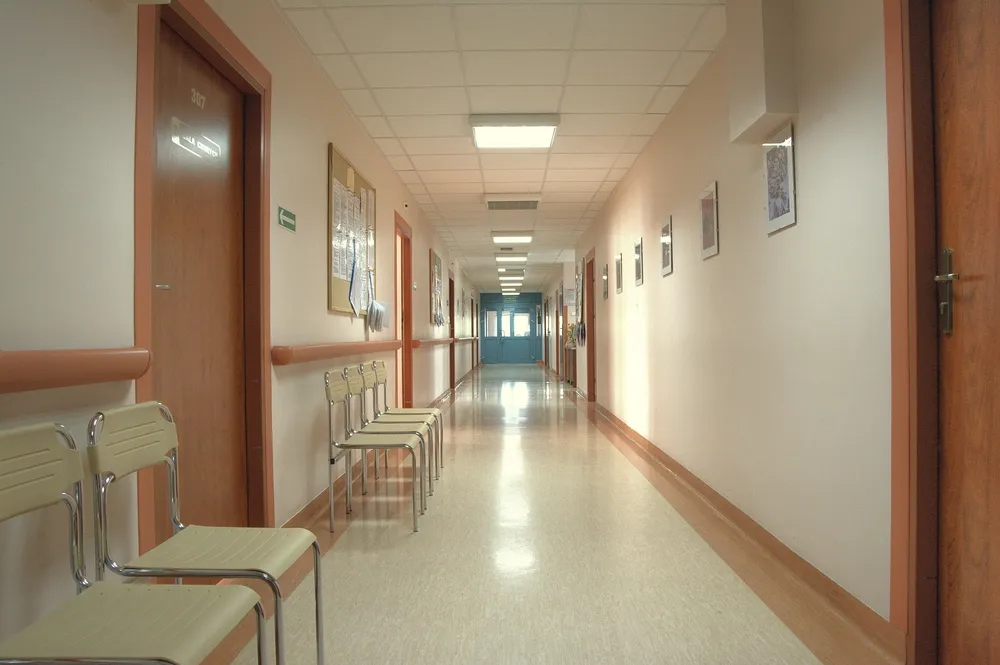Flu, RSV Hospitalizations Are Rising in Wisconsin
Rate has nearly doubled in past week and flu vaccinations are far below pre-pandemic levels.
Wisconsin health officials are warning residents about a rapidly increasing number of hospitalizations from respiratory viruses this fall.
The state Department of Health Services is reporting a significant increase in influenza and respiratory syncytial virus, or RSV, activity. During a call with reporters on Thursday, Tom Haupt, DHS respiratory disease epidemiologist, said the number of hospitalizations from both illnesses have nearly doubled over the last week.
Haupt said there have been 105 RSV hospitalizations and 60 influenza hospitalizations reported so far this season.
The number of COVID-19 cases in the state has also been increasing in recent weeks after a decline in late September. The latest Respiratory Virus Surveillance Report from Nov. 4 shows 10 percent of patients tested positive for COVID-19.
Haupt pointed out this is only the second winter that all three illnesses have been circulating at once. Compared to last November’s early surge, he said this respiratory virus season seems to be closer to pre-COVID trends.
“Pre-pandemic, we would always be looking for peak activity around the holidays or certainly after the holidays into January,” Haupt said. “That seems to be the case right now. But again, we just have to wait and see how things are going to be going with this.”
He said one of the biggest challenges for health care providers has been the national shortage of a new RSV preventative treatment for infants.
The drug, called nirsevimab, was approved in July. Federal health officials recommended this summer that all infants under 8 months old should receive the new shot.
But in October, the Centers for Disease Control and Prevention issued an alert to health care providers warning of a national shortage of the treatment and urging them to conserve the medication for babies at highest risk for severe illness.
Haupt said only a very small number of Wisconsin infants have received the shot and the state has been working to equitably distribute the vaccine.
“It’s very frustrating for us,” he said. “We were hoping by now to have higher numbers of children who had shots for nirsevimab, but that’s not going to happen.”
Because of the limited availability of shots for babies, he said state officials and health care providers have been recommending the new RSV vaccine that is available for pregnant people, which the CDC recommended in September. The shot can significantly reduce the risk of RSV hospitalization during an infant’s first six months after birth.
This is also the first winter that an RSV vaccine is available for adults age 60 years and older, which Haupt said is becoming more widely available.
Flu vaccination rates have also been frustrating for Haupt and other officials this year. Just over 24 percent of residents have gotten the shot. By comparison, 42 percent of Wisconsin residents received a flu shot during the 2019-20 season.
The latest state data shows only 9 percent of residents have gotten the updated COVID-19 vaccine.
Haupt said he is hoping to see more health care providers push their patients to get both the flu and COVID-19 boosters, especially those who are at highest risk of severe illness.
“It’s not too late to get those vaccines at this point,” Haupt said. “We really are hoping for an uptick.”
He said vaccinations are the best way to help stop the spread of the three viruses. Haupt said people who are sick should avoid visiting young children, older adults and people with underlying medical conditions.
Listen to the WPR report here.
DHS: Flu, RSV hospitalizations on the rise across Wisconsin was originally published by Wisconsin Public Radio.






















